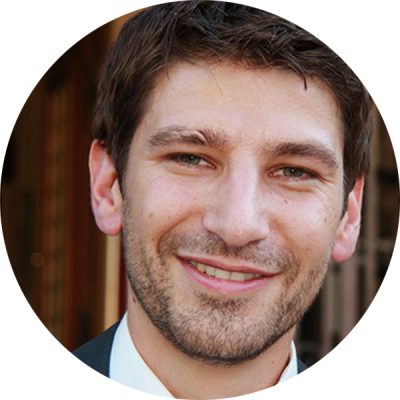
Romain Nardou
The ability to adapt to a changing environment is constrained across development, with children and adolescents being generally more adaptable compared with adults and the elderly. This observation is captured by the concept of a “critical period.” Cognitive neuroscientists have long speculated on the existence of a critical period for social behavior in humans. My studies conducted in the Dölen Lab are the first to identify and characterize such a critical period. We demonstrate that: 1) animals are maximally sensitive to social reward learning cues during adolescence, 2) this sensitivity declines in adulthood, and 3) these adaptations correspond to a maturational downregulation of oxytocin-mediated synaptic plasticity in the nucleus accumbens, a key brain region of the reward system. Another important discovery is that the atypical psychedelic drug MDMA is able to reopen the social reward learning critical period in adulthood. Clinically, MDMA has been successfully used in treating people with post-traumatic stress disorder, and our studies provide a possible mechanism for its remarkable therapeutic properties. Opening the critical window for social reward behavior has significant implications for understanding the pathogenesis of neurodevelopmental diseases characterized by social impairments, as well as disorders that respond to social influence or are the result of social injury.
Questions & Answers
Why did you choose Johns Hopkins for your work?
Johns Hopkins has an incredible history of scientific and clinical excellence and world-renowned groundbreaking research. The Department of Neuroscience, in particular, has a really strong and collaborative community that I wanted to join.
What does receiving this award mean to you personally and professionally? Do you have any connection with the particular award you received?
It is a great honor to be chosen to receive the Paul Ehrlich Award. This award means a lot personally and professionally, as I see it as a recognition of my work and the dedication that I put into my research. It really motivates me to continue my investigation on scientific problems that interest me in the field of neuroscience, and to move on to the next step of my scientific career.
What contributed to your project’s success?
There are many factors that contribute to my project’s success. My mentor, Gül Dölen, believed in the project and gave me key guidance at crucial moments. I have also been lucky enough to work with many talented lab members (special thanks to another postdoc in the lab, Eastman Lewis) but also collaborators who gave me excellent ideas and support across the years. I also feel that my perseverance, especially when I was struggling with the project, helped me with this success. Finally, I want to thank my supportive wife, who always had faith in me during the difficult times and gave me the motivation to complete the project.
What thoughts do you have about Young Investigators’ Day itself, as a celebration of the roles students and fellows play in research at Johns Hopkins?
It is great that Hopkins recognizes and celebrates the important role that students and fellows play in the advancement of scientific research. The award not only values our efforts but also builds confidence in our work necessary for the next step in our scientific careers. Concerning the day itself, it will be really interesting to learn about the work of other awardees from very different fields of research.
What has been your best/most memorable experience while at Johns Hopkins?
My most memorable experience was when my paper was accepted for publication. After more than a year of reviewing, I felt a combination of achievement, relief and happiness.
What are your plans over the next year or so?
I would like to stay in academia. I plan to apply to an independent faculty position this year to run my own research lab studying the neuronal mechanisms underlying the development, organization and modulation of social interaction across an organism’s lifespan.
Tell us something interesting about yourself.
I am French; I grew up in the South of France between la Provence and les Alpes, and did all my studies at a university located in the national park of Les Calanques near the Mediterranean Sea in Marseille. During my Ph.D., early in the morning I used to run in the Calanques, swim in the sea and run back to the lab to start my experiments. It really helped me de-stress and focus for the day. In my free time, I used to rock climb, but nowadays I really enjoy spending time with my wife and two lovely children.